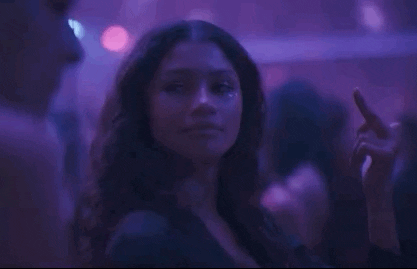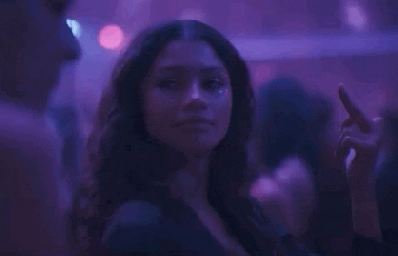Euphoria has become not only a hugely popular show in the past few years but a viral sensation. This is for good reason; the production is insane, the cast is talented, and the plot is entertaining. The release of season 2 has had a mixed response so far because, although the show never fails to be gripping and visually appealing, the story has taken some surprising twists and turns. While there is no doubt that audiences will continue to tune in every Sunday, the subtle criticisms of season 1 have evolved into concerns about where the writers are intending to go with the characters – and the unrelenting nudity and graphic content have always been unnecessary, but feel especially gratuitous this season.
Following season 1, I was flippant when I heard criticism of Euphoria’s storyline, specifically the fact that these characters are teenagers. I thought that this context was not necessarily important, because the plot feels simultaneously realistic and fantastical, and it’s easy to dismiss the disturbing quality of the show as simply a gripping storytelling technique. YouTube creator Kennie J. D. made a video in 2020 discussing her criticisms of Euphoria, in which she criticizes Sam Levinson’s (the show’s writer) notion that the gratuitous nudity is in service of the story’s authenticity. She argues that this show, in an effort to make it feel ‘real’, is actually taking a voyeuristic look into the lives of underage high school students, which I think hits the nail on the head. Movie and television writers have always capitalized on shocking depictions, however, when it comes to the depiction of teenagers, I find it creepy that the realism of the show is dependent on explicit scenes.
This show seems to be meant for adults but is inevitably going to attract underage audiences because it depicts their demographic. This is my greatest concern about Euphoria; I know that I am not going to be substantially affected by the content of this show, but had I tuned in at 16, I don’t doubt that it would have had an impact on me. Since the show’s release, one of its greatest draws has been it’s aesthetic. Now, I think it’s a reach to argue that portraying dangerous or unhealthy behaviours in TV or movies is an inherent promotion or normalization of these behaviours. However, there is a sort of romanticization in this show. When a drug addict is about to overdose and the camera is focusing on the glitter on their face while playing Labrinth in the background, an impressionable audience is definitely not getting a realistic impression of substance abuse.
The greatest asset of Euphoria is the characterization, and at least for me, that is the reason I continue watching. The show does a fantastic job of making an audience feel connected to the characters, and likely even relate to some of them. The main issue is that, although the storyline is realistic, addiction, abuse, and mental illness are not aesthetics. Self-destruction might be real, but no matter how good your makeup looks, it’s not cute.
Works Consulted:


